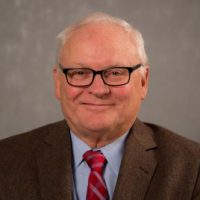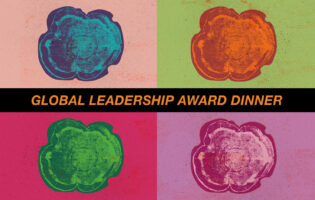Austria Goes to the Polls

Stephen F. Szabo
Senior Fellow
Dr. Stephen F. Szabo is a Senior Fellow at AICGS, where he focuses on German foreign and security policies and the new German role in Europe and beyond. Until June 1, he was the Executive Director of the Transatlantic Academy, a Washington, DC, based forum for research and dialogue between scholars, policy experts, and authors from both sides of the Atlantic. Prior to joining the German Marshall Fund in 2007, Dr. Szabo was Interim Dean and Associate Dean for Academic Affairs and taught European Studies at The Paul H. Nitze School of Advanced International Studies, Johns Hopkins University. He served as Professor of National Security Affairs at the National War College, National Defense University (1982-1990). He received his PhD in Political Science from Georgetown University and has been a fellow with the Alexander von Humboldt Stiftung, the Woodrow Wilson International Center for Scholars, and the American Academy in Berlin, as well as serving as Research Director at AICGS. In addition to SAIS, he has taught at the Hertie School of Governance, Georgetown University, George Washington University, and the University of Virginia. He has published widely on European and German politics and foreign policies, including. The Successor Generation: International Perspectives of Postwar Europeans, The Diplomacy of German Unification, Parting Ways: The Crisis in the German-American Relationship, and Germany, Russia and the Rise of Geo-Economics.
While the recent German election has been getting all the attention, Sunday’s election in Austria is likely to be more scrutinized than normal in this consensus-oriented country.
The likely winner and next chancellor is Sebastian Kurz, the leader of the center-right Austrian People’s Party (ÖVP, the rough equivalent of Germany’s Christian Democratic Union). Kurz is the Austrian version of a new model of European politician, following the lines of Emmanuel Macron in France and Christian Lindner of the Free Democrats (FDP) in Germany. At 31, Kurz is younger, but has already had a political career, including serving in the current government as foreign minister. Like Macron and Lindner, he has reshaped his party. The ÖVP has replaced the old party leadership with an influx of new and politically inexperienced members chosen from sports, media, and the broader culture. Kurz, with his slicked-down hair and open-collar shirts, is running entirely on his personality and on the issue of opposing immigration. He has relied on social media and on a PR firm that counts Coca Cola as a client to conduct an entirely new type of campaign—one that has proven very effective. Issue-free, the campaign has relied on the vision of new leaders with the slogan “It Is Our Time”—without any reference to the party.
Kurz has strong appeal with voters from Austria’s Gen X, mostly those with a Catholic conservative background and not from Red Vienna. Once he became the chancellor candidate, the numbers for the ÖVP jumped from the low 20s to the mid 30s, making it the most popular choice by more than ten points over the Social Democrats (SPÖ) and the right-wing populist Freedom Party (FPÖ). A poll taken on Sunday shows the ÖVP with 33 percent, the SPÖ with 27 percent, and the FPÖ with 25 percent. However, 27 percent remain undecided. In a truly bizarre turn of events, it has been revealed that the SPÖ was behind a smear campaign against Kurz that played on anti-Semitic themes and portrayed Kurz as soft on refugees. Again, this was the SPÖ—not the FPÖ.
The Kurz phenomenon, like that with Macron, signals the beginning of the arrival to power in Europe of a new post-Cold War generation, born in the 1980s and shaped by post-1989 events. However, while Macron is a convinced European, Kurz is far more skeptical of the EU. He is a hardliner on immigration and refugees and made a point of his pride in not going to the Vienna train station to welcome the refugees in 2015. He has supplanted the original right-wing populist party, the Freedom Party, with a nicer face and a softer image, but still represents the resurgence of right-wing politics in Central Europe.
The interesting question is why voters, in a country as prosperous as Austria (the fourth wealthiest in Europe), will give a majority of votes to these right-wing parties. After all, Austria has far less social and economic inequality than the U.S., Britain, or even Germany, no strikes, little criminality, and a lot of experience in integrating immigrants. The answers, as there is no one clear answer, lie in the past. Austria has had a long string of “Grand Coalitions” between the Christian Democrats and the Social Democrats. This long period of consensus governments has resulted in a lot of corruption and immobilization and a fatigue with opposition-less politics, which in turn opened the door initially to the FPÖ. This danger exists in Germany as well, as the outgoing Grand Coalition produced a significant showing for the right-wing Alternative for Germany (AfD).
Kurz has also been, in the words of Austrian journalist Paul Lendvai, “a phenomenon of the digital age,” using new media more effectively than the other parties. In contrast to Germany, in which social media has not replaced reliance on parties and main stream media, the Austrian media is not nearly as professional or influential. This has produced a much higher volatility in the Austrian electorate. The weakness of the ÖVP and its takeover by the chancellor candidate is both a surprising and important factor, as is the weakness and division of the Social Democrats and Greens. Here is another case of the crisis of the democratic left in Europe, with both Germany’s SPD and Austria’s SPÖ polling in the mid 20s.
What this all means for policy after the election is not entirely clear. It seems likely that Kurz will form a coalition with the FPÖ, especially given the SPÖ’s dirty tricks campaign. Beyond the tough line on immigration and refugees, it remains to be seen what a Kurz chancellorship will bring. It will, however, be a signal that what has come to be called populism has not yet reached its peak in Europe, as the German election also indicated. It will also be seen positively in Moscow given the pro-Putin views of the FPÖ and in Budapest and Warsaw, which will now have an ally in Vienna.
Dr. Stephen F. Szabo is a Senior Fellow at AGI.








